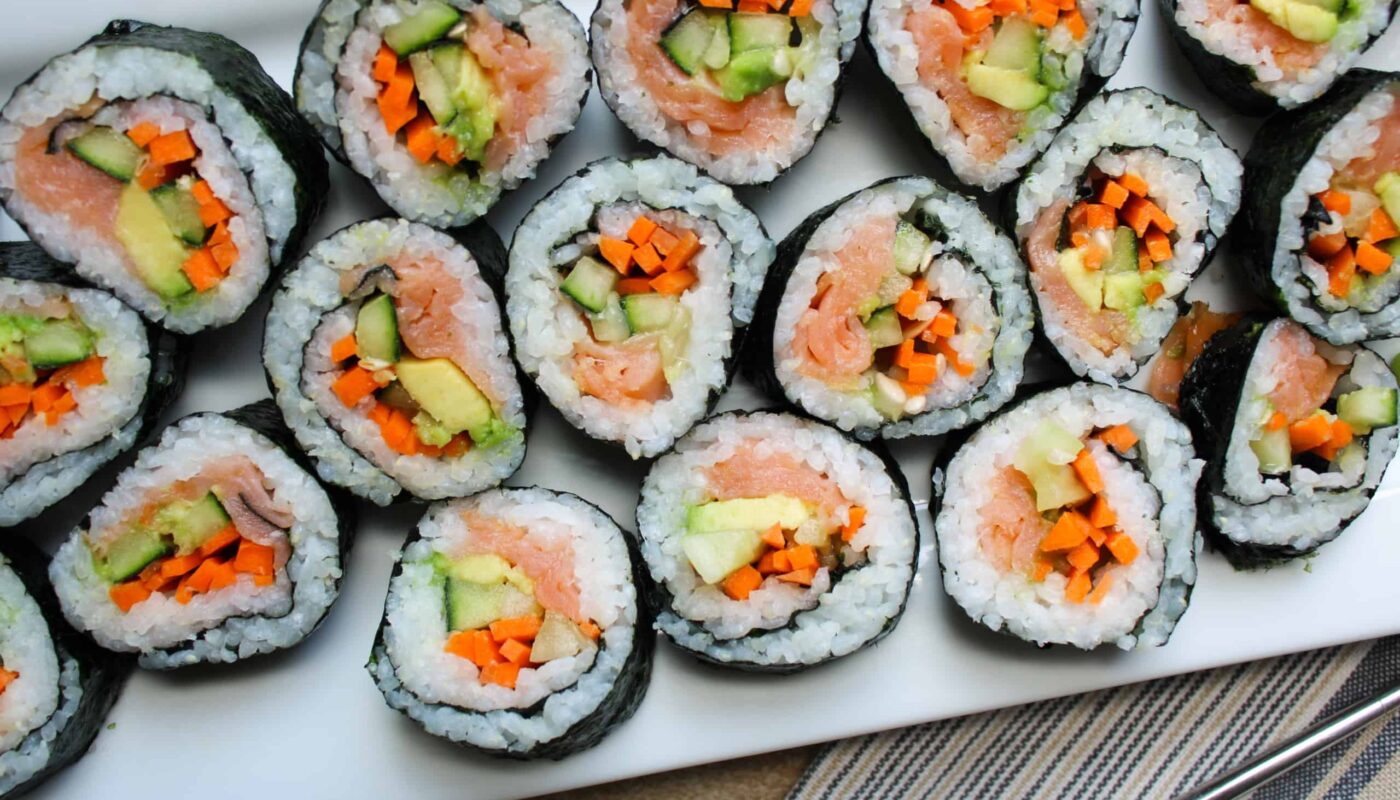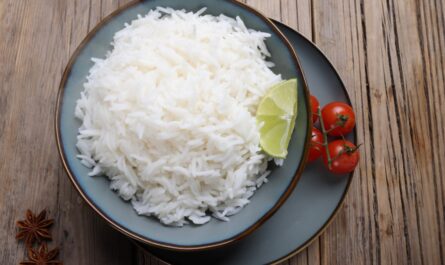For those who savor the fresh, delightful experience of sushi but prefer a vegetarian diet, this vegetarian sushi recipe will be a revelation. Sushi isn’t always about raw fish; in fact, vegetarian sushi offers an array of flavors and textures that are just as captivating. Whether you’re a seasoned sushi enthusiast or someone exploring new dietary preferences, this comprehensive guide will captivate your culinary senses.
The art of preparing vegetarian sushi lies in harmonizing varied textures, flavors, and aesthetics into one perfectly rolled delight. It’s incredibly versatile, making it an excellent choice for parties, family meals, or any occasion that calls for something extraordinary yet healthy. This guide will walk you through a step-by-step journey on making the best vegetarian sushi, from selecting the freshest ingredients to mastering the rolling technique.
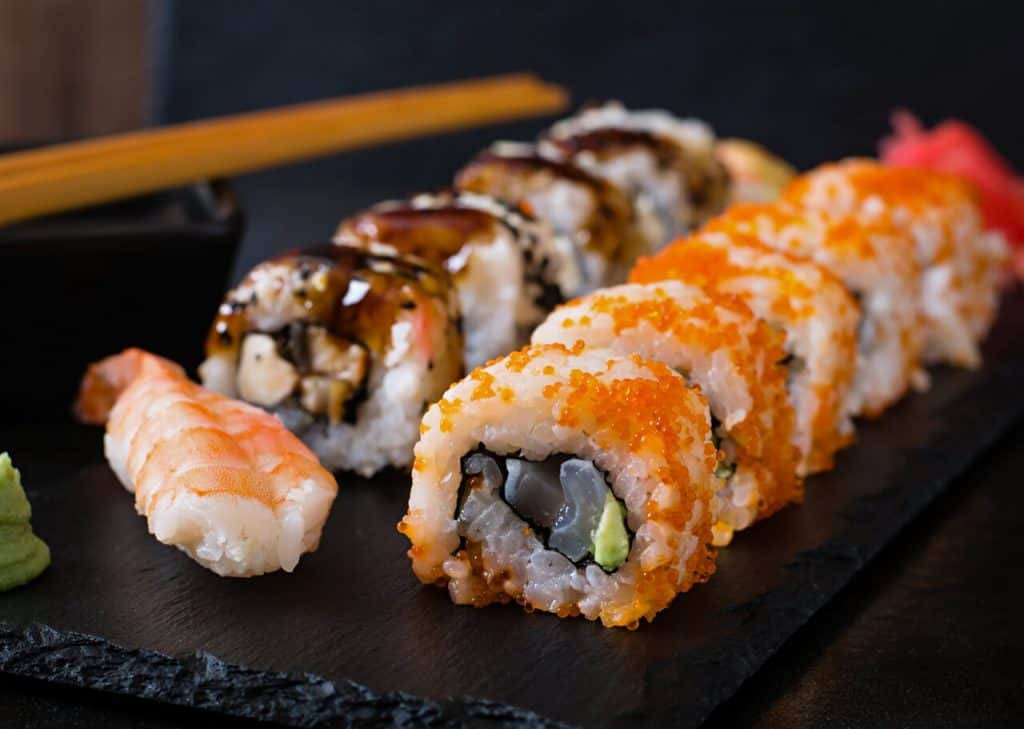
Essential Ingredients and Tools
Creating the ultimate vegetarian sushi recipe begins with selecting the freshest and most vibrant vegetables and essential tools to make your sushi-making experience as seamless as possible. Here, I have enlisted a detailed inventory of tools and ingredients that will be indispensable for our sushi expedition.
Common Tools
| Tool | Description | Link |
|---|---|---|
| Rice Cooker | Perfectly cooks sushi rice to the ideal texture. | Buy Rice Cooker |
| Sushi Knife | Ensures clean and precise cuts for the vegetables. | Buy Sushi Knife |
| Cutting Board | A sturdy surface to chop vegetables. | Buy Cutting Board |
| Strainer | Used for washing sushi rice. | Buy Strainer |
| Sushi Making Kit | Includes rolling mat, spatula, and storage tweezers. | Buy Sushi Making Kit |
Ingredients
The list below includes all the essential ingredients you’ll need for our vegetarian sushi recipe. Opt for the freshest and highest-quality ingredients to ensure the best flavors.
| Ingredients | Quantity | Description |
|---|---|---|
| Sushi Rice | 2 cups | Essential for the base of the sushi. |
| Rice Vinegar | 4 tablespoons | Used for seasoning the sushi rice. |
| Seaweed Sheets (Nori) | 10 sheets | The outer wrapping for sushi rolls. |
| Cucumber | 2 large | Peeled and julienned. |
| Carrot | 2 large | Peeled and julienned. |
| Avocado | 2 large | Sliced into strips. |
| Tofu | 1 block | Pressed and sliced into strips. |
| Bell Peppers | 2 medium | Thinly sliced. |
| Soy Sauce | As needed | For dipping. |
| Wasabi | As needed | Opt for the real wasabi if possible. |
| Pickled Ginger | As needed | For a tangy kick between sushi pieces. |
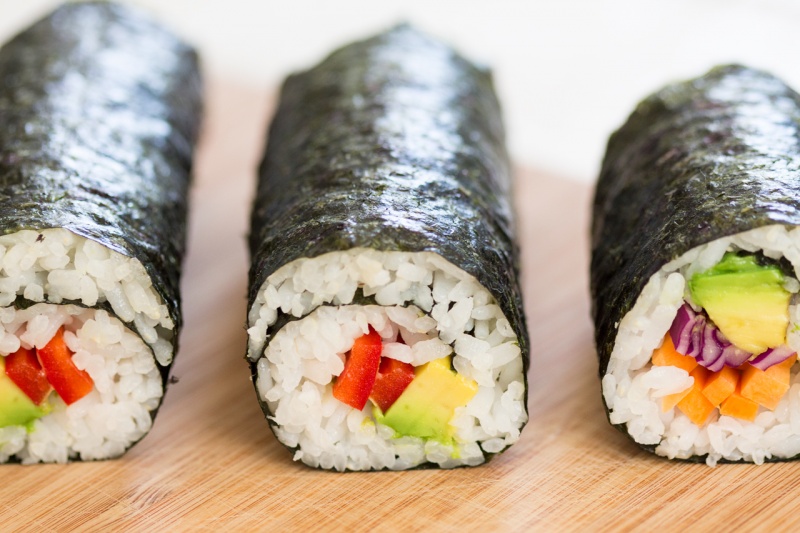
Step-by-Step Preparation
Step 1: Prepping the Sushi Rice
Great sushi starts with perfectly prepared rice. Begin by thoroughly rinsing the sushi rice using a strainer until the water runs clear. This removes the excess starch and ensures the rice won’t be too sticky. After rinsing, let the rice drain for about 30 minutes. Using a rice cooker, cook the rice according to the instructions, adjusting water levels as necessary to achieve that perfect sushi rice consistency.
Once the rice is cooked, transfer it to a wooden or plastic bowl. Add the rice vinegar, sugar, and salt while gently folding the rice with a spatula. Be careful not to smash the grains. Allow the sushi rice to cool to room temperature before using.
Step 2: Preparing the Vegetables
As the sushi rice cools, it’s time to prepare the vegetables. Using a sushi knife, finely julienne the cucumber and carrot. Be patient and take your time to ensure uniformity in the cuts as this will result in a more elegant presentation.
Next, slice the avocado and tofu into slender strips. If you’re preparing bell peppers, ensure they are also sliced thinly to provide that crunchy texture without overpowering other flavors. These sliced ingredients should be arranged on a clean cutting board for easy access during rolling.
Step 3: Assembling the Sushi Rolls
Now comes the fun part: assembling your vegetarian sushi rolls. Place a sheet of nori on the bamboo mat. Its crucial to use a bamboo mat from a reliable sushi making kit. Spread the cooled sushi rice evenly over two-thirds of the nori sheet, leaving the top third empty to seal the roll. Use your fingers to press the rice down gently but firmly.
Lay the vegetable strips horizontally across the center of the rice. You can mix and match the vegetables to suit your preference. Once layered, lift the edge of the bamboo mat closest to you and begin rolling. Apply gentle pressure to keep the roll tight. Once you reach the end, dampen the top edge of the nori sheet to seal the roll.
Step 4: Cutting and Serving
Carefully transfer the sushi roll to the cutting board. Using a sharp sushi knife, cut the roll into bite-sized pieces. To ensure clean cuts, dip the knife in water between slices. Arrange the sushi pieces on a platter and serve with soy sauce, wasabi, and pickled ginger.
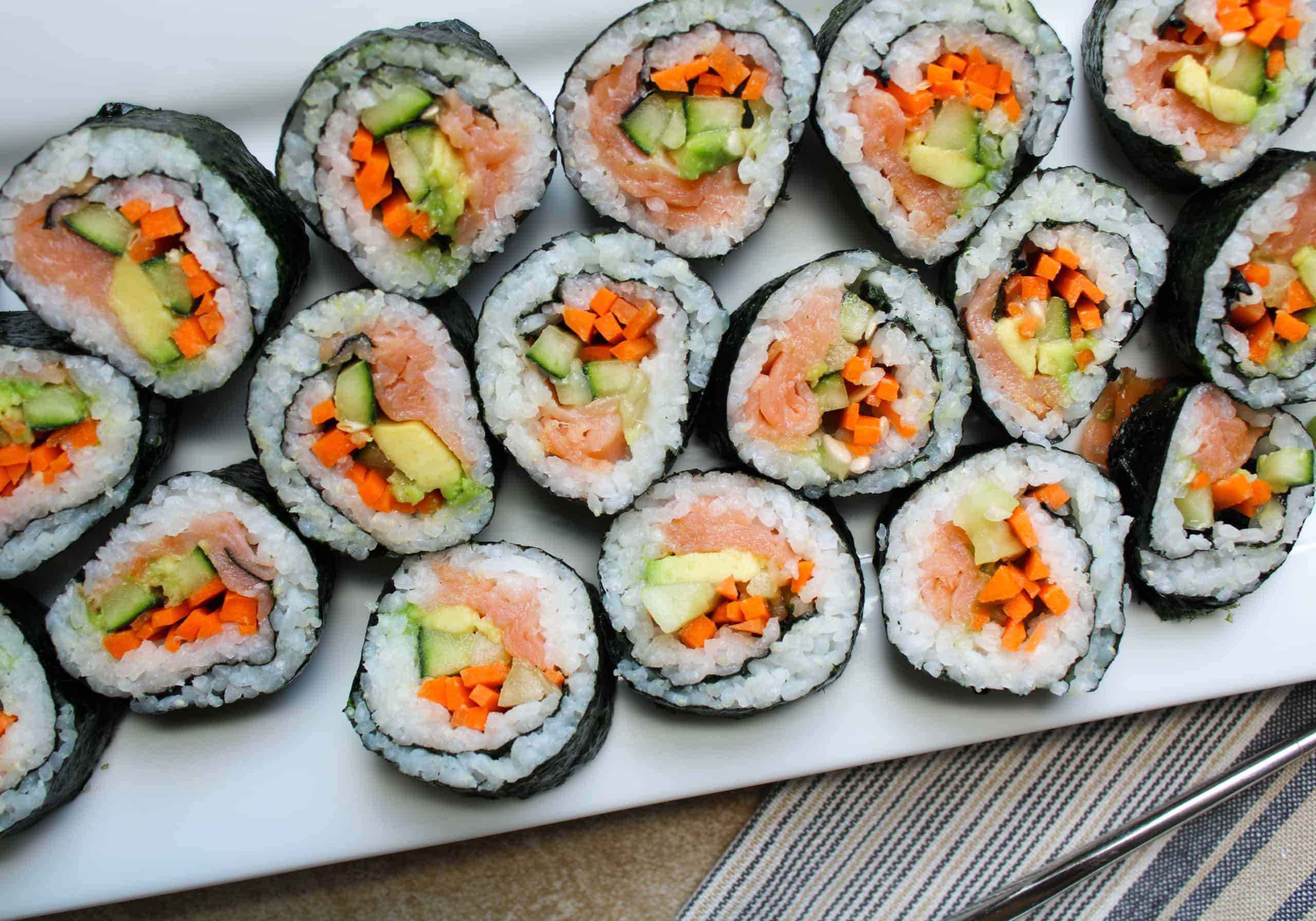
Pro Tips for Perfect Vegetarian Sushi
Creating the ultimate vegetarian sushi requires more than just following a recipe; it’s an artistry that can be perfected with a few expert tips.
Firstly, always opt for the freshest vegetables to ensure vibrant colors and crisp textures. Secondly, mastering the rice is essential; it should be sticky enough to hold together but not mushy. Additionally, using a damp cloth to clean the knife between cuts can make slicing through the sushi rolls much easier and cleaner.
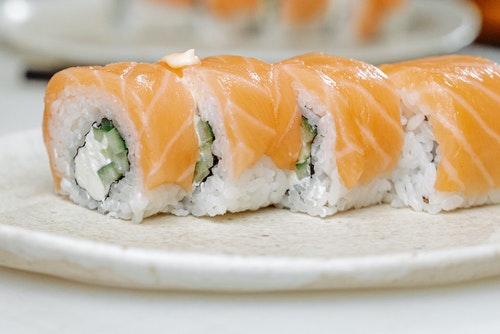
Health Benefits of Vegetarian Sushi
Vegetarian sushi isn’t just delicious; it’s also a powerhouse of nutrition. Packed with vitamins, minerals, and fiber, the variety of vegetables used can offer numerous health benefits. For instance, avocados provide healthy fats, cucumbers are hydrating and low in calories, and carrots offer a boost of Vitamin A.
The seaweed (nori) adds an extra nutritional punch, being rich in iodine, vitamins, and minerals. Moreover, using tofu as a protein source makes this sushi an all-rounded, balanced meal perfect for any diet.
Conclusion
This vegetarian sushi recipe is a testament to the versatility and deliciousness that plant-based ingredients can offer. Whether you’re a seasoned cook or a newbie in the kitchen, this guide provides all the essential steps, tips, and tools needed to create an authentic sushi experience at home. From the vibrant colors to the delightful textures and flavors, making your own vegetarian sushi is an enriching culinary journey.
Don’t forget to browse through more exotic recipes at Volcano Roll, California Roll, and Deep Fried Sushi for more inspiration.
As an Amazon Associate, I earn from qualifying purchases.
——————————————————————————————————–
Disclosure: This post contains affiliate links. As an Amazon Associate I earn from qualifying purchases, but there will be no extra charges to you. Thank you for your support!

